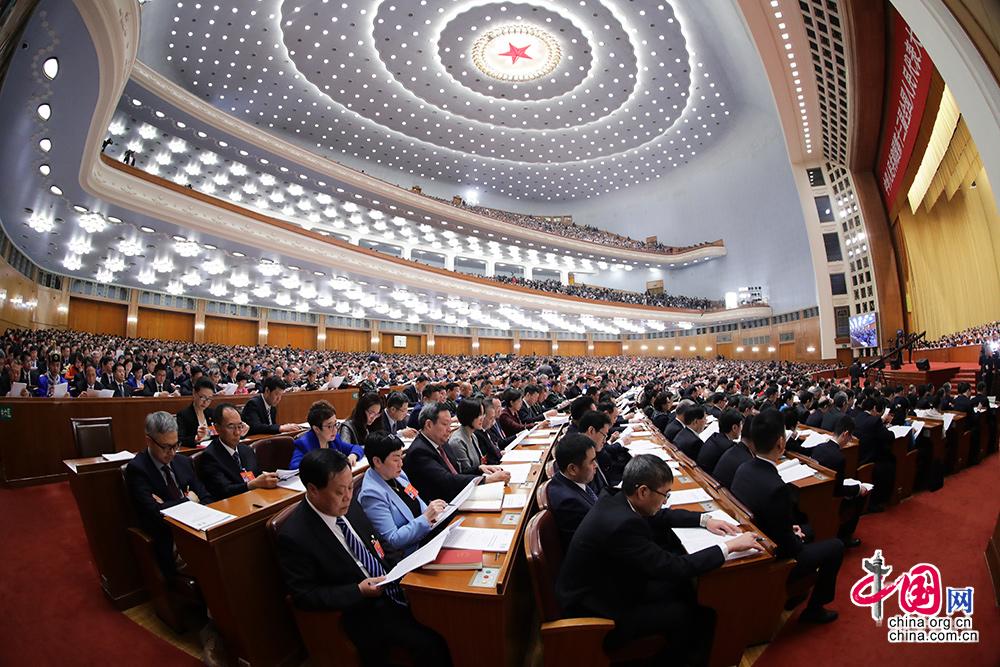Private business gains confidence from Li's gov't work report
- By Guo Yiming
 0 Comment(s)
0 Comment(s) Print
Print E-mail China.org.cn, March 6, 2019
E-mail China.org.cn, March 6, 2019
Representatives from the private sector attending the ongoing two sessions in Beijing said they have gained much confidence from a series of support policies announced by Premier Li Keqiang on March 5.

"We are deeply motivated by the policy measures regarding tax cut and efforts to promote a business-friendly environment," said Wang Yu, chairman of Spring Airlines, a Shanghai-based privately-owned carrier.
According to the government work report, in 2019 China will implement larger-scale tax cuts focusing primarily on reducing the tax burden on the manufacturing sector and on small and microbusinesses, and significantly reduce enterprise's contributions to social insurance schemes.
The report also says that the government will energize market entities and further improve the business environment by cutting red tape, promoting fair competition and cutting business-related charges.
The direction of these policies demonstrate the government's resolve to prop up the economy as it faces new downward pressure, said Wang, who is also a member of the Chinese People's Political Consultative Conference (CPPCC), the country's top political advisory body.
Yao Jinbo, a deputy to the National People's Congress (NPC) and CEO of China's Craigslist-like 58.com, applauded Premier Li's announcement of utilizing multiple channels to stabilize and expand employment, which include creating employment for key groups, supporting flexible and new forms of employment, stopping gender and identity discrimination in employment, and encouraging the development of vocational education.
"Premier Li's employment-first policy makes us fully confident in the future and from this we have felt the government's resolve to shore up the economy faced with uncertainties," he said.
Yan Ying, a CPPCC member and chairman of the Beijing Federation of Industry and Commerce, said Li's report answers the call of most Chinese private enterprises and delivers confidence in China's growth.
The report, which reviews the past year's development and lays out key policy measures for the new year, mentioned private businesses, micro enterprises and private capital 15 times throughout, which demonstrated the government's high concern for the private community, said Yan.
She particularly agrees with the premier's initiative encouraging more inclusive financial services so that medium, small and micro enterprises can more easily access affordable financing.
Nan Cunhui, another CPPCC member and chairman of CHINT Group, a Zhejiang-based smart energy solution provider, said the government's VAT reform—to lower the tax rate in manufacturing, transportation and construction and to simplify the VAT system—will increase companies' cash flow and enable them to increase spending on R&D, to promote industrial upgrades and to sustain high-quality growth.
According to figures calculated at the end of 2017, China is home to over 27 million private enterprises and 65 million individual businesses. Statistics show China's private sector accounts for over 50 percent of the country's overall tax revenue, 60 percent of the GDP, 70 percent of technology innovations, and 80 percent of urban employment.






Go to Forum >>0 Comment(s)